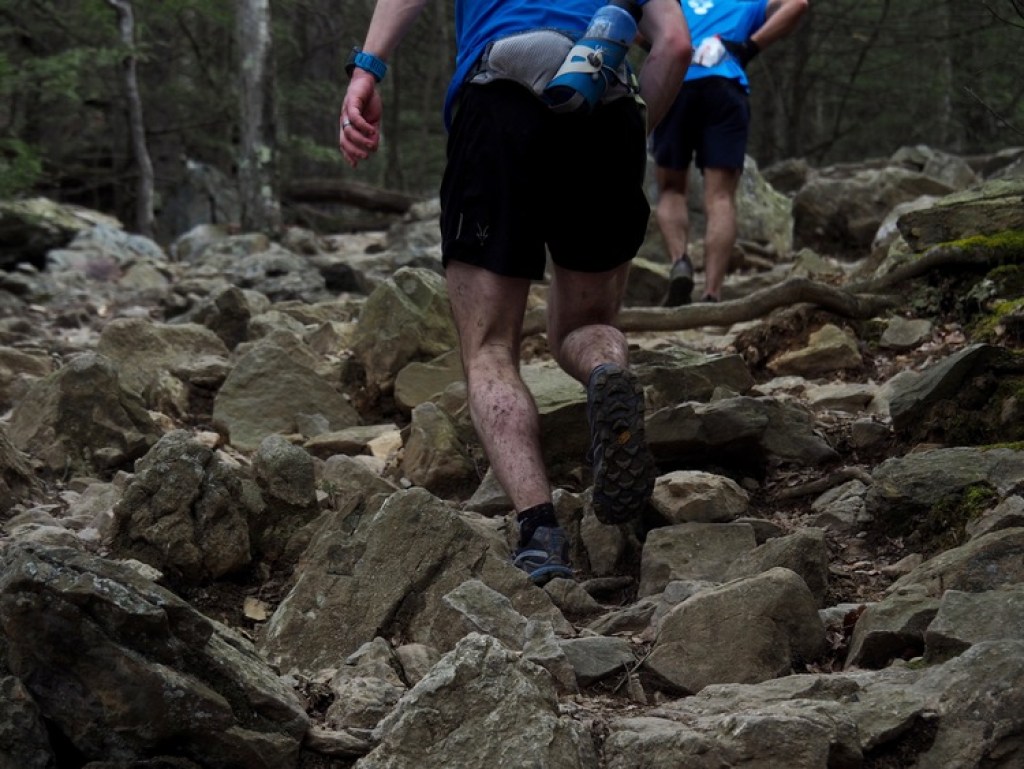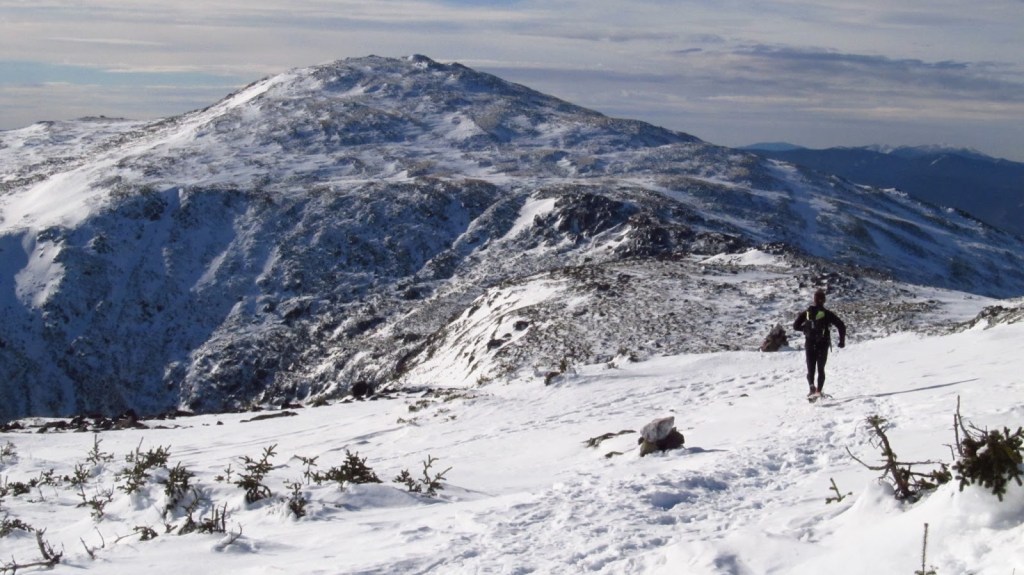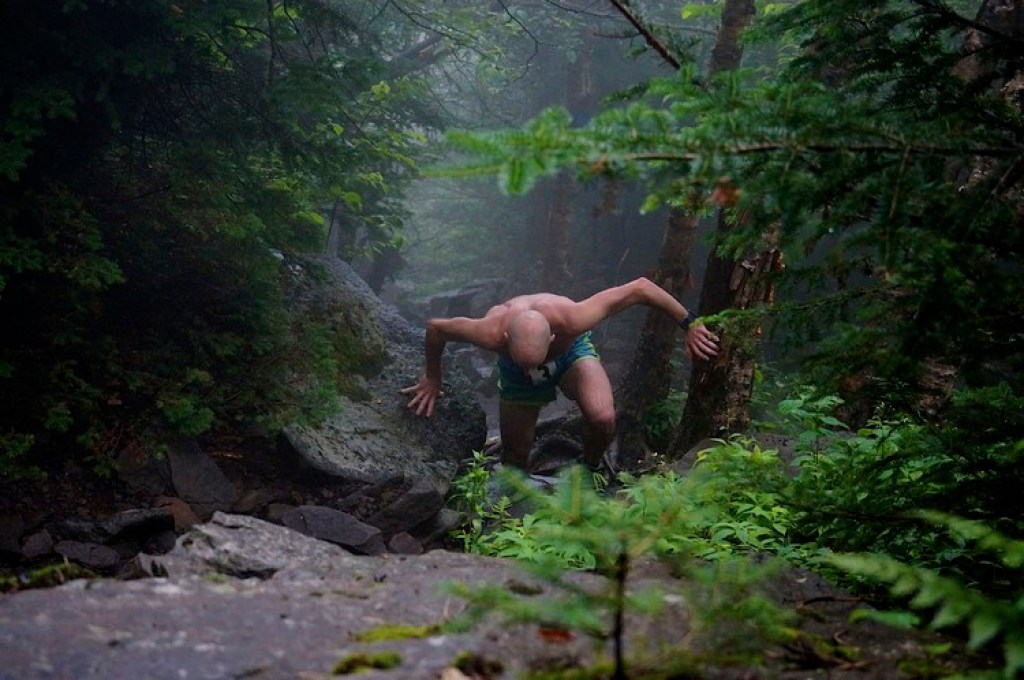The record-setting rush in Franconia Notch State Park
Just a jog has never been Ben Nephew’s style. He once ran the length of Rhode Island, for fun. Between competing in ultramarathons and setting dozens of fastest known time (FKT) records all around New England, Nephew estimates he’s run 70,000 miles over the course of his life—roughly equivalent to three times around the equator.
But the more miles he accrues, the more he realizes that traditional races aren’t exactly his style. The cost, race logistics and overrun courses don’t excite him. His favorite places to run—on trails like New Hampshire’s Franconia Ridge Loop and the Presidential Traverse—will likely never host races. These trails not only weave through protected state and national parks with notoriously complicated event permits, but they also present logistical trickery that can deter race coordinators: exposed ridgelines with high weather variability and remote point-to-point trailheads.
So, instead of shelling out dues for upcoming races on lackluster courses, Nephew scours topo maps, talks to his running buddies, and picks out routes that inspire him—ones that he thinks he can run fast, faster than anyone else. Since 2009, after securing his first FKT, gunning for new trail records has absorbed the bulk of the 41-year-old’s running energy.
“All I thought was: This guy is nuts.”
What Nephew is known for is downhill running. Kevin Tilton, one of Nephew’s long-time running partners and former U.S. Mountain Running Team member, says that the first time they ran together on technical terrain, he noticed Nephew tearing down a crumbly, rocky section. “All I thought was: This guy is nuts.”
Tilton and Nephew established their first FKTs together on the 31-mile Pemi Loop in the White Mountains. On the uphills, Tilton led and Nephew pushed hard below. Going down, Nephew took over and Tilton scurried behind, trying desperately to keep up without smashing his knees. They tackled the whole trail like this, in tandem.

Photo: Joe Azze
It’s been over a decade since the duo started running together. They still race with each other, though it’s not always side-by-side, or even on the same days. They live a few hours apart—Nephew near Boston and Tilton in central New Hampshire—so they’ve tapped into a competitive scheme that many top New England mountain runners, tired of the racing scene, have concocted: FKT bids. Each runner takes a turn running the same trail, times themselves, and then compares how they fare against others’ bests.
In New England especially, laced with thousands of miles of pristine “unrace-able” trails, this allows competitive runners to stay competitive without having to sacrifice the quality of their running terrain. Nephew says, “It’s really hard for me to make an argument for races now… Some of these [state park trails] are so spectacular, they just can’t compete with race courses.”
Franconia Notch State Park caught Nephew’s eye in 2012. He spied the Franconia Ridge Loop, a 9-mile trail with nearly 3,500 feet of elevation gain and high-exposure ridges. On a clear day, the sprawling treetop view from the trail’s 5,260-foot Mt. Lafayette offers sweeping vistas of the White Mountains.
For an FKT run, Nephew writes the record holder’s split times on his water bottle. He’ll sharpie figures like “summit: 23 minutes” so he can compare his own pace when he reaches the top. On his first Franconia FKT bid in June 2012, Nephew completed the Loop in 1 hour, 45 minutes and 50 seconds—a new FKT for his resume.
“There are so many variables that a 45-second difference doesn’t really mean much.”
It wasn’t until nearly two years later, when Tilton passed through Franconia Notch for business, that he thought, why not give it an FKT go, too?
It was March and Tilton’s shoes, with built-in micro spikes, dug into ice and snow as he neared Mt. Lafayette’s summit. He rounded the loop, sped past Franconia’s 250-year-old trees and hit the trailhead again in one hour, 45 minutes and 13 seconds.

Kevin Tilton | Photo courtesy of Tilton
He emailed Nephew a heads up—he’d bested him by 37 seconds.
Nephew says it’s “kind of wild how competitive FKTs have gotten” in the past few years. With more elite runners vying, the time differences have been near-negligible. Tilton agrees, “There are so many variables that a 45-second difference doesn’t really mean much.”
Still, with a new figure to test himself against, Nephew was psyched. Another reason he prefers FKTs is that there’s no such thing as a “bad race day.” If the weather is bad, he’ll return another time. Not feeling great? Nephew won’t stress; he’ll rest up and try again later.

Ben Nephew | Photo: Joe Azze
On September 20, 2014, Nephew wrote Tilton’s record splits on his water bottle. He set out. Nearing Mt. Lafayette, he glanced at his bottle, then his watch: one hour, eight minutes. He was just over two minutes ahead of Tilton’s time.
Nephew started the descent. He knew he’d have to dig into his downhill prowess, delicately place his feet, keep his eyes glued no more than four feet in front of his toes and wield his arms left and right to maintain balance. Tilton’s run in the soft spring snow had eased his descent compared to what lay before Nephew: big rocks and loose dirt.
He took a swig of water and hurdled himself downhill, churning his legs, finding the subtle balance between risking a fall—which would ensure he’d lose to Tilton—and not maximizing his potential.
Nephew barreled forward. A trekking pole went flying.
It seemed to be working, at least until a quarter-mile from the trailhead. A group of hikers stood in his way. He’d lucked out until that point, having the trail mostly to himself. Nephew tried to say something, and the group started to move aside. He didn’t want to hit any of them. They wielded trekking poles. Thick shoes. Backpacks. Trees lined the path, awkwardly jamming the group.
Nephew neared, but couldn’t tell which way they were moving. His legs couldn’t stop.
One man started to turn around, assuming what Nephew describes as “a power stance nearly four-feet wide,” straddling the trail with his poles out, puncturing the dirt.
Nephew barreled forward. A trekking pole went flying. Nephew thinks he may have clipped the man’s arm, but he doesn’t know for certain. He didn’t look back. He might’ve yelled sorry, but he didn’t even take a full breath until 1,000 feet later at the trailhead.
One hour, 44 minutes and 25 seconds. A new FKT.
